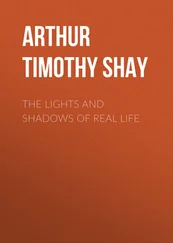Владимир Набоков - The Real Life of Sebastian Knight
Здесь есть возможность читать онлайн «Владимир Набоков - The Real Life of Sebastian Knight» весь текст электронной книги совершенно бесплатно (целиком полную версию без сокращений). В некоторых случаях можно слушать аудио, скачать через торрент в формате fb2 и присутствует краткое содержание. Жанр: Классическая проза, на английском языке. Описание произведения, (предисловие) а так же отзывы посетителей доступны на портале библиотеки ЛибКат.
- Название:The Real Life of Sebastian Knight
- Автор:
- Жанр:
- Год:неизвестен
- ISBN:нет данных
- Рейтинг книги:5 / 5. Голосов: 1
-
Избранное:Добавить в избранное
- Отзывы:
-
Ваша оценка:
- 100
- 1
- 2
- 3
- 4
- 5
The Real Life of Sebastian Knight: краткое содержание, описание и аннотация
Предлагаем к чтению аннотацию, описание, краткое содержание или предисловие (зависит от того, что написал сам автор книги «The Real Life of Sebastian Knight»). Если вы не нашли необходимую информацию о книге — напишите в комментариях, мы постараемся отыскать её.
The Real Life of Sebastian Knight — читать онлайн бесплатно полную книгу (весь текст) целиком
Ниже представлен текст книги, разбитый по страницам. Система сохранения места последней прочитанной страницы, позволяет с удобством читать онлайн бесплатно книгу «The Real Life of Sebastian Knight», без необходимости каждый раз заново искать на чём Вы остановились. Поставьте закладку, и сможете в любой момент перейти на страницу, на которой закончили чтение.
Интервал:
Закладка:
I got up.
'What's the matter,' she said, 'what are you thinking about?'
I shook my head. But she was right. I was thinking of something now – something that had to be solved, at once…
'Why, are we going in?' she asked as we moved up the path.
I nodded.
'But she won't be down before another minute, you know. Tell me why are you sulking?'
I think I stopped and stared at her again, this time at her I slim little figure in that buff, close-fitting frock.
I moved on, brooding heavily, and the sun-dappled path seemed to frown back at me.
'Vous n'кtes guиre amiable,' said Madame Lecerf.
There was a table and several chairs on the terrace. The silent blond person whom I had seen at lunch was sitting there examining the works of his watch. As I sat down I clumsily jolted his elbow and he let drop a tiny screw.
'Boga radi,' he said (don't mention it) as I apologized.
(Oh, he was Russian, was he? Good, that would help me.)
The lady stood with her back to us, humming gently, her foot tapping the stone flags.
It was then that I turned to my silent compatriot who was ogling his broken watch.
'Ah-oo-neigh na-sheiky pah-ook,' I said softly.
The lady's hand flew up to the nape of her neck, she turned on her heel.
'Shto?' (what?) asked my slow-minded compatriot, glancing at me. Then he looked at the lady, grinned uncomfortably and fumbled with his watch.
'J'ai quelque chose dans le cou…. There's something on my neck, I feel it,' said Madame Lecerf.
'As a matter of fact,' I said, 'I have just been telling this Russian gentleman that I thought there was a spider on your neck. But I was mistaken, it was a trick of light.'
'Shall we put on the gramophone?' she asked brightly.
'I'm awfully sorry,' I said, 'but I think I must be going home. You'll excuse me won't you?'
'Mais vous кtes fou,' she cried, 'you are mad, don't you want to see my mend?'
'Another time perhaps,' I said soothingly, 'another time.'
'Tell me,' she said following me into the garden, 'what is the matter?'
'It was very clever of you,' I said, in our liberal grand Russian language, 'it was very clever of you to make me believe you were talking about your friend when all the time you were talking about yourself. This little hoax would have gone on for quite a long time if fate had not pushed your elbow, and now you've spilled the curds and whey. Because I happen to have met your former husband's cousin, the one who could write upside down. So I made a little test. And when you subconsciously caught the Russian sentence I muttered aside….' No, I did not say a word of all this. I just bowed myself out of the garden. She will be sent a copy of this book and will understand.
18
That question which I had wished to ask Nina remained unuttered. I had wished to ask her whether she ever realized that the wan-faced man, whose presence she had found so tedious, was one of the most remarkable writers of his time. What was the use of asking! Books mean nothing to a woman of her kind; her own life seems to her to contain the thrills of a hundred novels. Had she been condemned to spend a whole day shut up in a library, she would have been found dead about noon. I am quite sure that Sebastian never alluded to his work in her presence: it would have been like discussing sundials with a bat. So let us leave that bat to quiver and wheel in the deepening dusk: the clumsy mimic of a swallow.
In those last and saddest years of his life Sebastian wrote The Doubtful Asphodel, which is unquestionably his masterpiece. Where and how dig he write it? In the reading room of the British Museum (far from Mr Goodman's vigilant eye). At a humble table deep in the corner of a Parisian 'bistro' (not of the kind that his mistress might patronize). In a deck-chair under an orange parasol somewhere in Cannes or Juan, when she and her gang had deserted him for a spree elsewhere. In the waiting room of an anonymous station, between two heart attacks. In a hotel, to the clatter of plates being washed in the yard. In many other places which I can but vaguely conjecture. The theme of the book is simple: a man is dying: you feel him sinking throughout the book; his thought and his memories pervade the whole with greater or lesser distinction (like the swell and fall of uneven breathing), now rolling up this image, now that, letting it ride in the wind, or even tossing it out on the shore, where it seems to move and live for a minute on its own and presently is drawn back again by grey seas where it sinks or is strangely transfigured. A man is dying, and he is the hero of the tale; but whereas the lives of other people in the book seem perfectly realistic (or at least realistic in a Knightian sense), the reader is kept ignorant as to who the dying man is, and where his deathbed stands or floats, or whether it is a bed at all. The man is the book; the book itself is heaving and dying, and drawing up a ghostly knee. One thought-image, then another breaks upon the shores of consciousness, and we follow the thing or the being that has been evoked: stray remnants of a wrecked life; sluggish fancies which crawl and then unfurl eyed wings. They are, these lives, but commentaries to the main subject. We follow the gentle old chess player Schwarz, who sits down on a chair in a room in a house, to teach an orphan boy the moves of the knight; we meet the fat Bohemian woman with that grey streak showing in the fast colour of her cheaply dyed hair; we listen to a pale wretch noisily denouncing the policy of oppression to an attentive plainclothes man in an ill-famed public-house. The lovely tall prima donna steps in her haste into a puddle, and her silver shoes are ruined. An old man sobs and is soothed by a soft-lipped girl in mourning. Professor Nussbaum, a Swiss scientist, shoots his young mistress and himself dead in a hotel room at half past three in the morning. They come and go, these and other people, opening and shutting doors, living as long as the way they follow is lit, and are engulfed in turn by the waves of the dominant theme: a man is dying. He seems to move an arm or turn his head on what might be a pillow, and as he moves, this or that life we have just been watching, fades or changes. At moments, his personality grows conscious of itself, and then we feel that we are passing down some main artery of the book. 'Now, when it was too late, and Life's shops were closed, he regretted not having bought a certain book he had always wanted; never having gone through an earthquake, a fire, a train accident; never having seen Tatsienlu in Tibet, or heard blue magpies chattering in Chinese willows; not having spoken to that errant schoolgirl with shameless eyes, met one day in a lonely glade; not having laughed at the poor little joke of a shy ugly woman, when no one had laughed in the room; having missed trains, allusions, and opportunities; not having handed the penny he had in his pocket to that old street violinist playing to himself tremulously on a certain bleak day in a certain forgotten town.'
Sebastian Knight had always liked juggling with themes, making them clash or blending them cunningly, making them express that hidden meaning, which could only be expressed in a succession of waves, as the music of a Chinese buoy can be made to sound only by undulation. In The Doubtful Asphodel, his method has attained perfection. It is not the parts that matter, it is their combinations.
There seems to be a method, too, in the author's way of expressing the physical process of dying: the steps leading into darkness; action being taken in turns by the brain, the flesh, the lungs. First the brain follows up a certain hierarchy of ideas – ideas about death: sham-clever thoughts scribbled in the margin of a borrowed book (the episode of the philosopher): 'Attraction of death: physical growth considered upside down as the lengthening of a suspended drop; at last falling into nothing.' Thoughts, poetical, religious: '…the swamp of rank materialism and the golden paradises of those whom Dean Park calls the optimystics….' 'But the dying man knew that these were not real ideas; that only one half of the notion of death can be said really to exist: this side of the question – the wrench, the parting, the quay of life gently moving away aflutter with handkerchiefs: ah I he was already on the other side, if he could see the beach receding; no, not quite – if he was still thinking.' (Thus, one who has come to see a friend away may stay on deck too late, but still not become a traveller.)
Читать дальшеИнтервал:
Закладка:
Похожие книги на «The Real Life of Sebastian Knight»
Представляем Вашему вниманию похожие книги на «The Real Life of Sebastian Knight» списком для выбора. Мы отобрали схожую по названию и смыслу литературу в надежде предоставить читателям больше вариантов отыскать новые, интересные, ещё непрочитанные произведения.
Обсуждение, отзывы о книге «The Real Life of Sebastian Knight» и просто собственные мнения читателей. Оставьте ваши комментарии, напишите, что Вы думаете о произведении, его смысле или главных героях. Укажите что конкретно понравилось, а что нет, и почему Вы так считаете.













the net the easiest thing to be aware of.
I say to you, I certainly get annoyed whilst people
think about worries that they plainly don't recognize about.
You controlled to hit the nail upon the highest and defined out the whole thing without having side-effects , other folks can take a signal.
Will likely be back to get more. Thank you